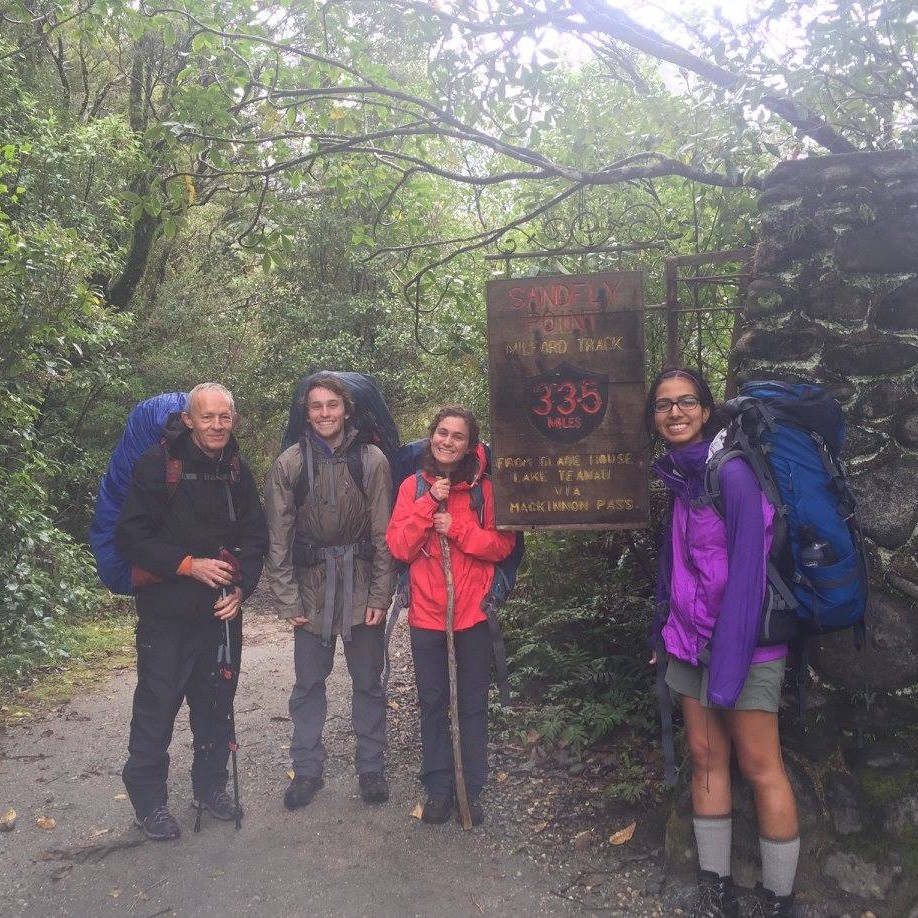Most Princeton students are worried about similar things. We covet internships as gateways to jobs after graduation. We seldom forget that graduate and professional school applications loom. We see post-grad options as neatly divided among four categories: corporate careers, graduate/professional degrees, fellowships, and (for a few) nonprofit work.
After five semesters at Princeton, this mentality has rubbed off on me. But my time studying in New Zealand has changed the way I see my options after graduation.
Two weeks ago, during my Easter break, I embarked on the Milford Walk, arguably New Zealand’s most famous hike. My favorite part of the four-day, three-night walk was the people I met along the way — Their experiences expanded what I saw as possible post-Princeton pathways. I met recent graduates from the United States, Israel, France, and Australia who were working abroad. Two Vanderbilt graduates worked in the hotel industry in Queenstown. A young woman from Pennsylvania took time to pursue art while working in the North Island’s tourism industry. A group of men who had finished serving in the Israeli Defense Force took a break before resuming life at home. Many of them moved to New Zealand without a set plan and used this work-travel time as a respite from college and professional life, where they could start to realize what kinds of careers really excited them.

Almost every hiker’s job lay outside the spectrum I normally heard about on campus. I walked with physical therapists, staff members of environmental non-profits, musicians, and small business owners. It was my first time talking to people who worked in several of these fields, and many were surprised to hear that their occupations would comprise a slim minority of my college’s graduating class.
I had never met so many people who had graduated without a plan — or at least without planning to pursue a corporate career. To me, traveling and working abroad had always seemed dreamy but frivolous. Financial concerns also affected my perspective: I’m responsible for funding my future education, so while I’ve thought about going to law school or graduate school in philosophy, I need to secure a job first. I don’t believe in feeding the stigma against traditional corporate jobs: I think working at consulting firms or pharmaceutical companies are a perfectly legitimate postgraduate options. But before coming to New Zealand, traditional corporate workplaces sometimes seemed like the only options for someone like me.
The people I met on the Milford Track showed me that there are many other paths to follow after graduation. I’ve started to consider working for a small business, starting my own company, joining a nonprofit, or even taking an interim job abroad for a few months while I think about what really excites me. Corporate jobs and fellowships are wonderful, if they fit your goals. But there are dozens of post-grad options that promise to be equally fulfilling, as I learned from my friends on the track.
Pursuing a side interest or taking up a job in a new place will certainly change your perspective, and it might even introduce you to a new lifestyle or career that you never knew you’d love.
— Vidushi Sharma, Humanities Correspondent

